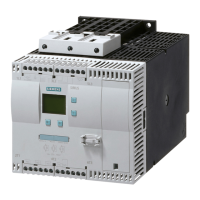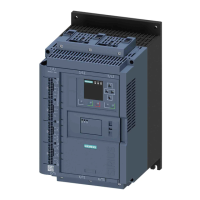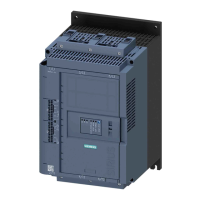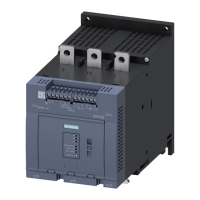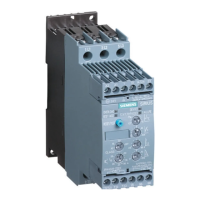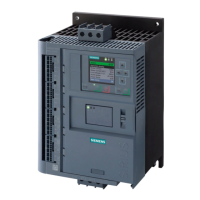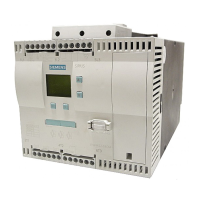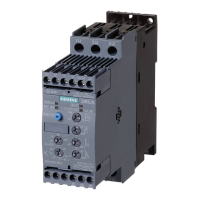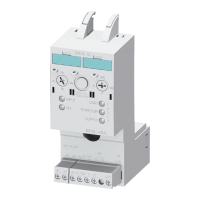Commissioning
13.4 Setting the motor protection function
SIRIUS 3RW30 / 3RW40
Manual, 10/2018, NEB535199502000/RS-AB/005
119
Setting the motor protection function
The motor overload protection function is implemented on the basis of the winding
temperature. This indicates whether the motor is overloaded or functioning in the normal
operating range.
The winding temperature can either be calculated with the help of the integrated, electronic
motor overload function or measured with a connected motor thermistor.
Setting the electronic motor overload protection
The rated operational current of the motor must be set with the I
e
potentiometer according to
the mains voltage and the motor connection (wye-delta).
The current flow during motor operation is measured by measuring the current with
transformers integrated in the soft starter. This value is also used for the current limiting
function. The temperature rise in the winding is calculated based on the rated operational
current set for the motor.
You can set the required trip class (10, 15, or 20) with the CLASS potentiometer. A trip is
generated by the soft starter when the standardized characteristic is reached, depending on
the trip class (CLASS setting).
The trip class specifies the maximum time within which a protective device must trip from a
cold state at 7.2 x the rated operational current (motor protection to IEC 60947). The tripping
characteristics represent this time as a function of the tripping current (refer to chapter Motor
protection tripping characteristics for 3RW40 (with symmetry) (Page 157)).
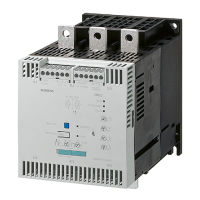
